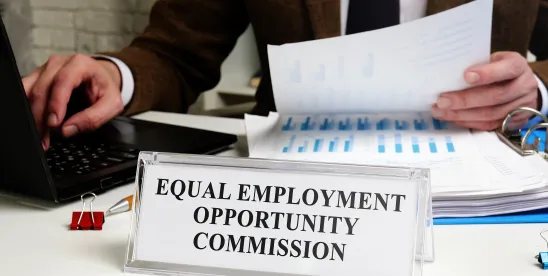On October 3, 2024, the United States District Court for the District of Columbia’s Opinion and Order in Mark C. Savignac and Julia Sheketoff v. Jones Day, et al., 19-cv-02443-RDM, addressed Title VII’s “participation clause,” in granting in part and denying in part, the law firm’s motion for summary judgment.
The court further denied plaintiff’s cross-motion for summary judgment. Plaintiffs, a married couple who were both formerly employed as attorneys (she resigned in 2018, he was terminated in 2019), alleged federal and state discrimination and retaliation claims based on their objections to Jones Day’s unequal parental leave policies. In the latter part of the opinion, the Court analyzed whether Savignac engaged in protected activity under the participation clause of Title VII of the Civil Rights Act of 1964 (“Title VII”).
In addition to prohibiting discrimination, Title VII’s provisions protect a covered individual from employer retaliation when the individual participates in an investigation or opposes covered unlawful conduct. These provisions—commonly referred to as the “participation clause” and “opposition clause”—are intended to encourage employees to report, and employers to address, discrimination in the workplace.
The participation clause prohibits retaliation against an employee “because he has made a charge, testified, assisted, or participated in any manner in an investigation, proceeding, or hearing under this subchapter.” 42 U.S.C.A. § 2000e-3. The last three words of this statute have compelled several Circuits—including the Second (Townsend v. Benjamin Enterprises, Inc., 679 F.3d 41 (2d Cir. 2012)), Sixth (Abbott v. Crown Motor Co. Inc., 348 F.3d 537 (6th Cir. 2003)), Seventh (Hatmaker v. Mem. Med. Ctr., 619 F.3d 741 (7th Cir. 2010)), Eighth (Brower v. Runyon, 178 F.3d 1002 (8th Cir. 1999)), and Eleventh (E.E.O.C. v. Total Sys. Services, Inc., 221 F.3d 1171 (11th Cir. 2000)) to hold that “the participation clause applies only to investigations, proceedings, or hearings brought or pending before a governmental agency pursuant to Title VII and its implementing regulations.” In other words, the participation clause applies only upon the filing of an EEOC charge or similar complaint.
The Savignac plaintiffs argued, consistent with the EEOC’s longstanding published position, that participation in an internal review was protected activity under Title VII’s participation clause. This strategy was advanced over a decade prior in Townsend, when it was a question of first impression in the Second Circuit. The Townsend plaintiffs argued that the Supreme Court’s decisions in Faragher v. City of Boca Raton, 524 U.S. 775 (1998) and Burlington Industries, Inc. v. Ellerth, 524 U.S. 742 (1998) (“Faragher/Ellerth”) brought internal workplace investigation within the meaning of “under this subchapter” by incentivizing employers to investigate complaints in order to take advantage of the affirmative defense articulated in these cases. Townsend, 679 F.3d at 49-50. This was a reasonable assertion—the Supreme Court said the same thing when holding that internal investigations were subject to Title VII’s opposition clause in Crawford v. Metro. Gov’t of Nashville and Davidson County, Tennessee, 555 U.S. 271 (2009). The top court did not, however, analyze that case under the participation clause, which left the door open for Townsend and others.
The Second Circuit, however, held that for the participation clause to afford an employee protection, an investigation must specifically be conducted under “Title VII, not merely integral to effectuating its purposes.” Townsend, 679 F.3d at 51. This holding is seemingly at odds with the EEOC’s guidance, which states that it is unlawful to discriminate against an employee because of participation in “any manner in an investigation.” The agency further explains that “any manner” includes internal investigations, due to the importance of taking prompt corrective action.
Ultimately, the DC District Court in Savignac stayed consistent with its predecessors, but also noted that the instant case did not involve an internal investigation—only “an email demanding equal treatment.” Thus, the prospect of further analysis before other courts (including the Supreme Court) awaits. For this case, it is now poised to proceed to trial in November 2025.
While the Courts’ reasoning is sound, it remains at odds with the EEOC’s interpretation. It may be of no moment due to Crawford’s declaration that the opposition clause provides such safeguards, but the possibility that an employee experiences retaliation for participating—but not necessarily opposing an unlawful practice—continues to exist. In that event, we may finally see resolution of the tension between the agency and the courts.





 />i
/>i

